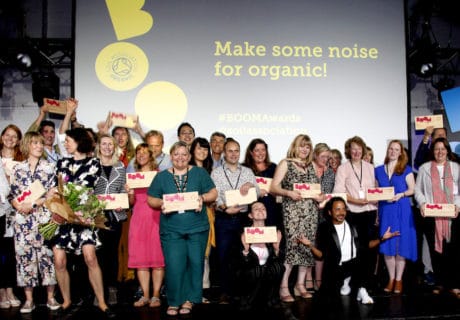Farming billions of animals every year requires a huge amount of resources, including land, water and crops. Did you know that for every 100 calories fed to animals, we receive back only 12 calories by consuming meat and dairy? Eco-conscious and green consumers are often interested to learn about the inefficiencies of animal farming and the links between our dietary choices and planetary health. So, what can your customers do to help? Here are some plant-strong tips you can pass on, to help people lower their environmental footprints:
- Take an interest in food origins
It’s good to choose local and seasonal produce if possible. Many people are unaware that you can buy beans, peas, lentils and quinoa grown in Britain. Also, many products on UK shelves contain soya grown in Europe. It’s always worth checking out company policies on sustainability. It’s helpful to limit air-freighted fruit and vegetables eg green beans from Africa or berries from the USA.
- Grow your own fruit, vegetables and herbs
You don’t need to have lots of space to produce your own food. Fruit, vegetables and herbs can be grown in containers. Another option is to find a community growing project.
- Think about packaging
Can you help consumers to buy unpackaged food? If this isn’t feasible, here are a few good alternatives:
- Selling foods in bulk
- Using reusable, biodegradable or recyclable packaging
- Join the war against food waste
In the UK, millions of tonnes of food and drink are wasted every year and most of it is avoidable. Using canned and frozen fruit and vegetables can help to reduce this type of waste. You can support the war on waste and reduce your environmental footprint by limiting especially perishable fruit and vegetables and those that are pre-prepared, chopped or trimmed eg salad bags, cut pineapple. Root vegetables and brassicas like broccoli and cabbage are less perishable choices. If someone tends to buy too much when they hit the shops, meal planning and online shopping might help them to avoiding throwing food away.
- Eat what you need
Here’s a green perspective on healthy living: it’s good for both people and the planet. Although many of us enjoy eating foods laden with fat, sugar and salt, they’re unnecessary from a nutrition point of view and can be considered a waste of resources. Eating a nutritious diet and maintaining or working towards a healthy weight helps us to use the products of our food system efficiently.
- Consider hydration habits
Instead of buying soft drinks, it’s more environmentally friendly to stay hydrated by keeping a reusable water bottle with you. You could offer consumers tips about making refreshing iced tea if they need a change.
This summer, The Vegan Society is encouraging people to think differently about food by joining our Plate Up for the Planet campaign and eating vegan for a week. For information about the links between our diets and the environment, check out vegansociety.com/plateup.





